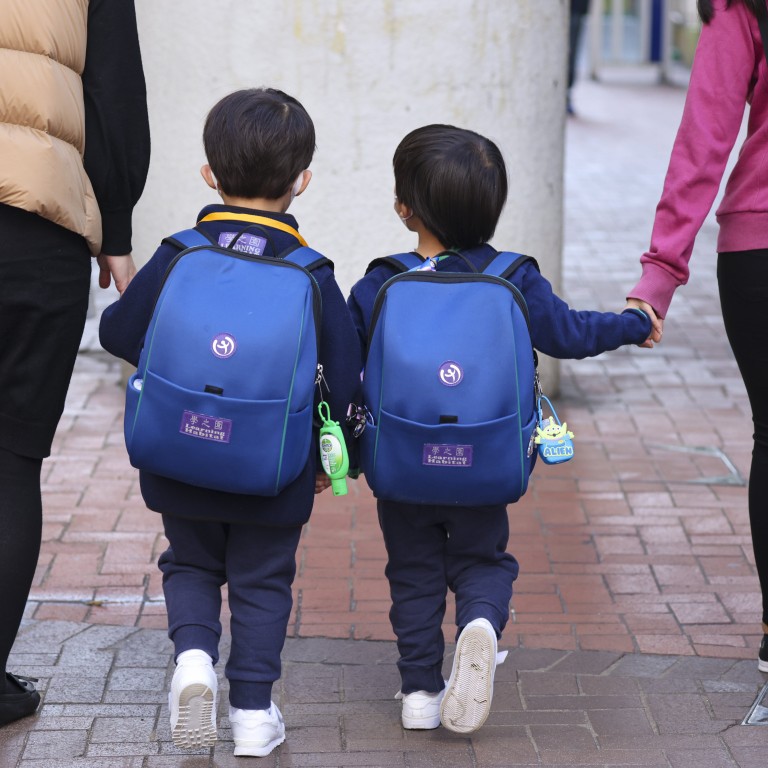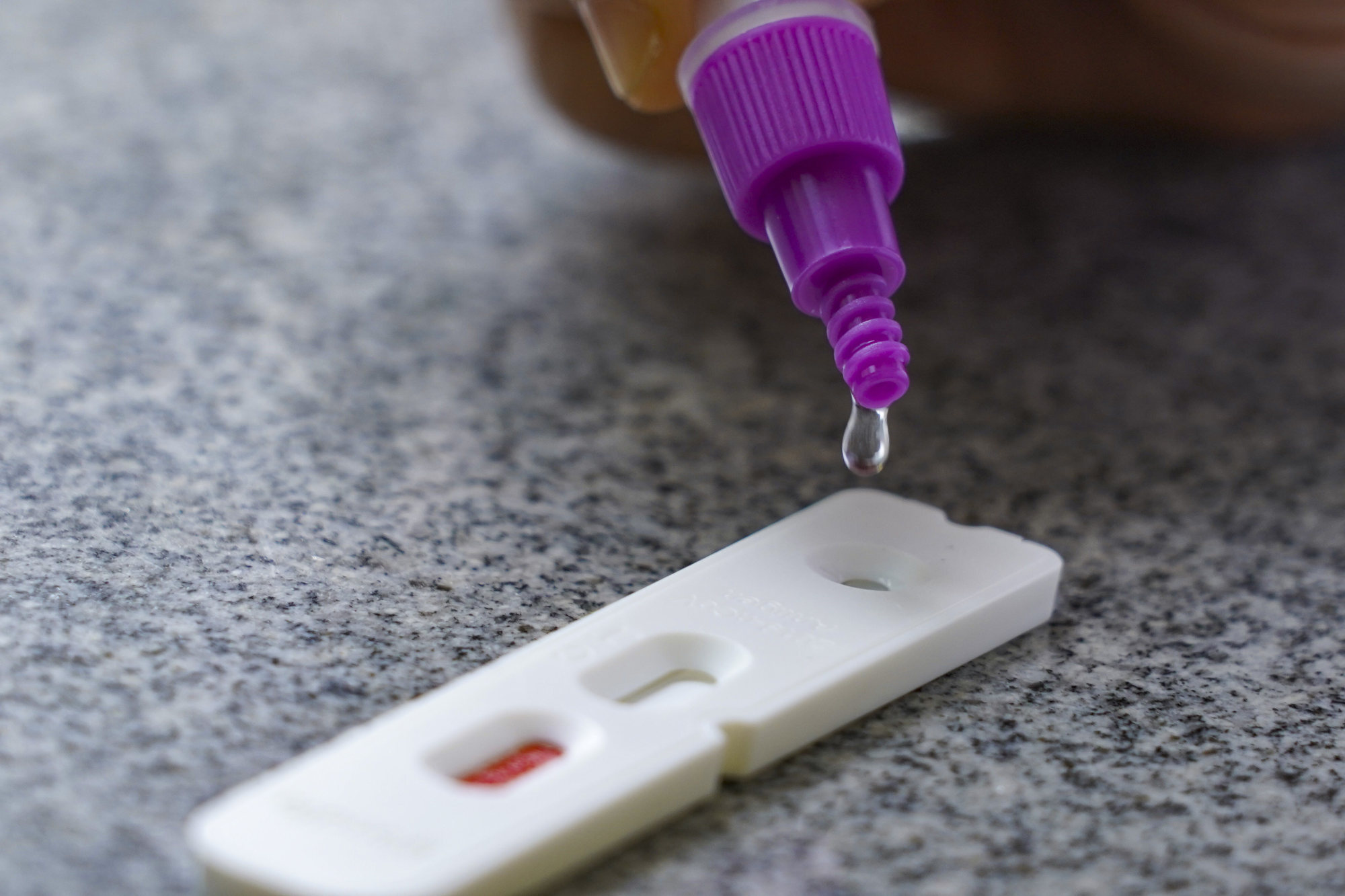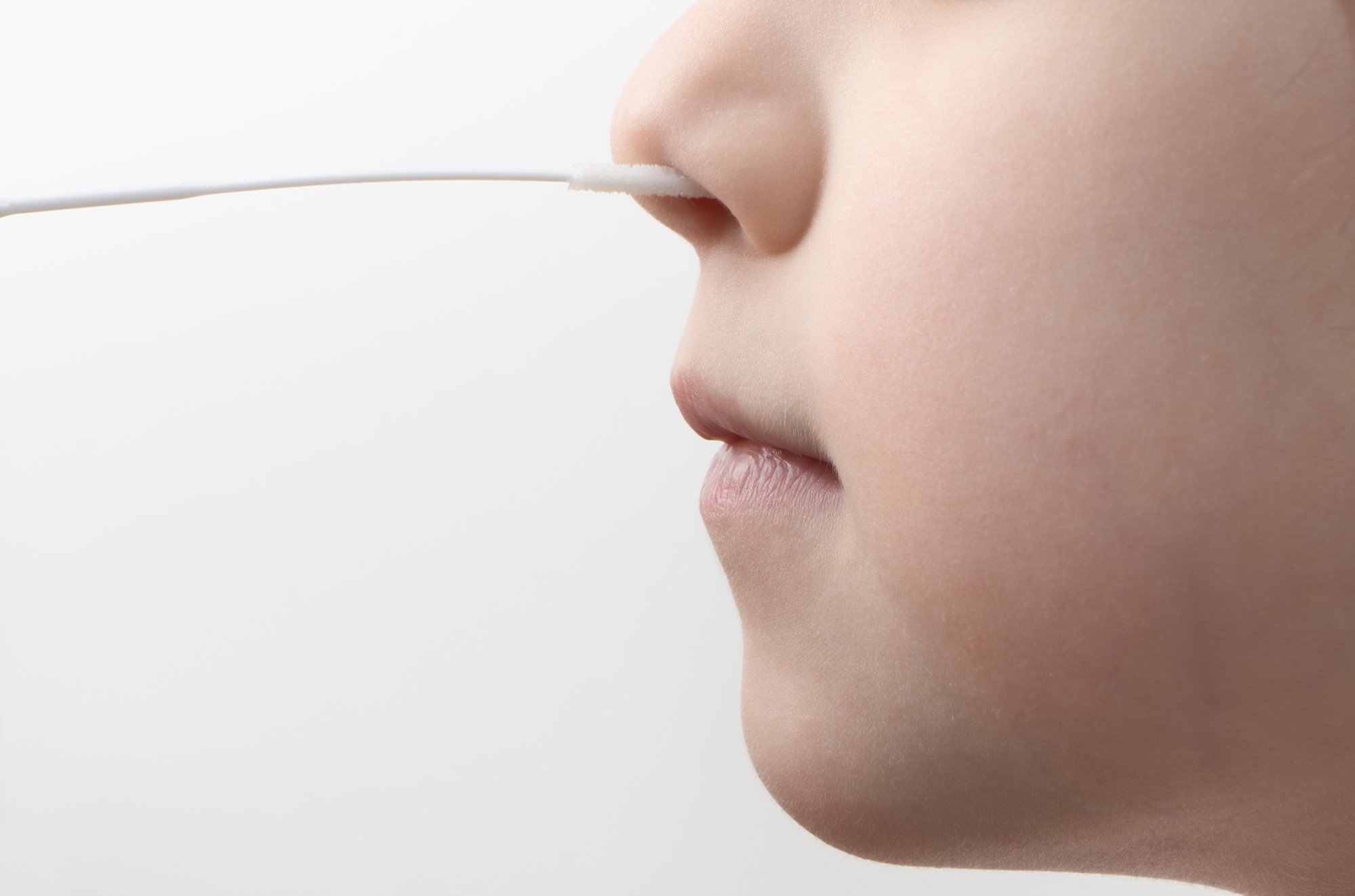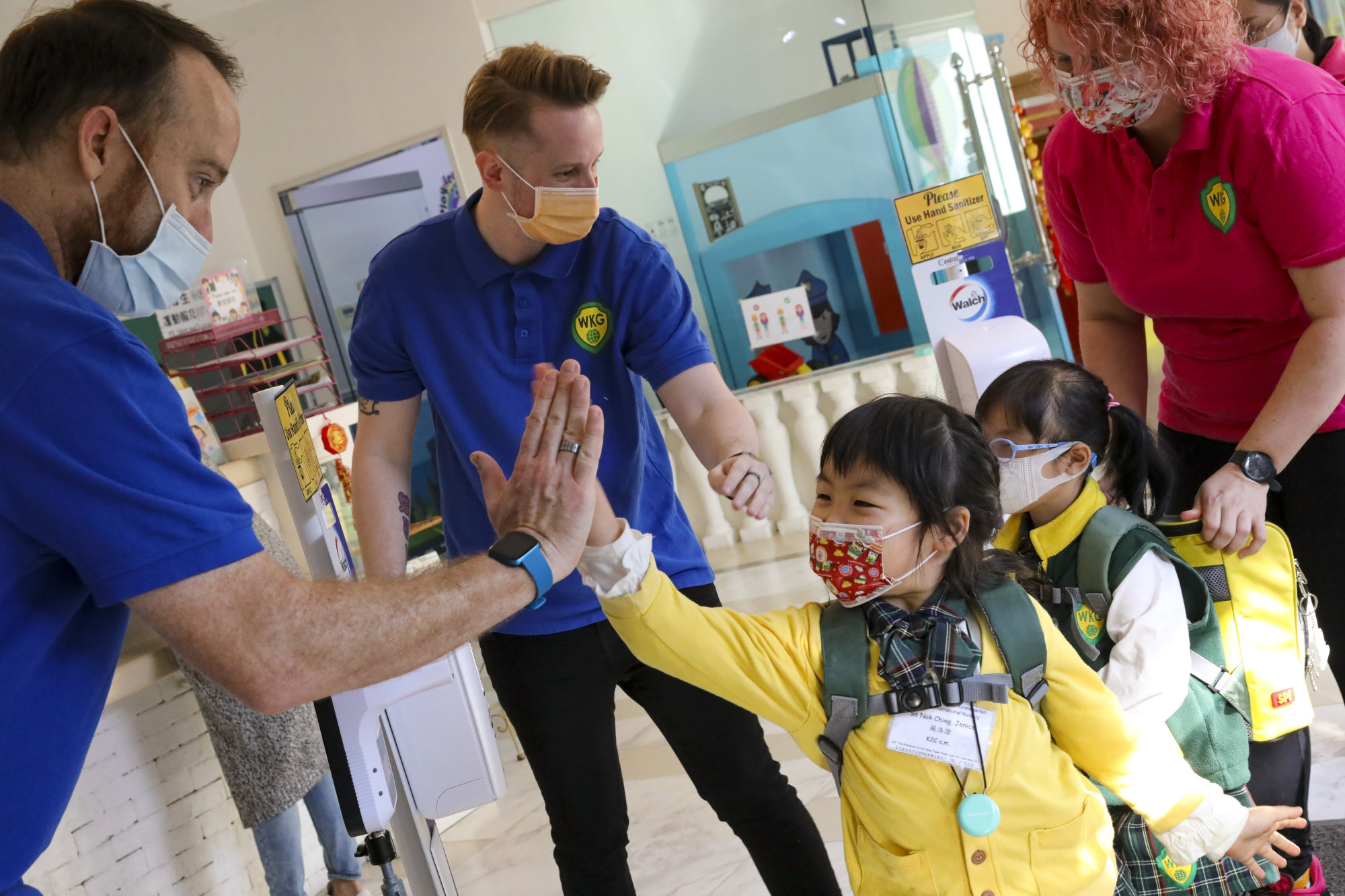
Hong Kong parents fret over daily Covid-19 swab tests for children as kindergartens resume face-to-face classes
- Worried about causing nosebleeds in children, some parents plot ways to get around swab rule
- Government requires daily swab tests as kindergartens resume in-person classes in stages from Tuesday
With Hong Kong kindergartens resuming face-to-face classes from Tuesday, parents’ WhatsApp chat groups have been buzzing with chatter on ways to beat the rule requiring children as young as three to do daily rapid antigen tests for Covid-19.
Some schools have asked parents to take a picture of the test result as proof, with the date written on it.
But some parents, worried about hurting young children or causing nosebleeds with daily swab tests, have been anxious to get around the government rule.
A housewife in her 40s, who asked to be identified only as Yiu, said she had seen phone messages from parents planning to wipe off the date and write a new one every day, while others said they would submit their own test results.
She said she had no intention of cheating or lying because that was something she had always taught her six-year-old son not to do.
“I have no reason to teach my boy to lie. He might also tell the truth if the teachers ask whether he did the test,” she said.

At the same time, however, it bothered her that other parents were planning ways to get around the rules.
“It is meaningless for me to follow the rule strictly if others violate it,” she said.
After nearly four months of having face-to-face classes suspended, a third of kindergarten pupils, those aged five and six in K3, can return from Tuesday. Another third can return on May 10, and the rest on May 16.
Children have to do their rapid antigen tests daily and those who are found to be positive must report the result to the Centre for Health Protection and their schools. The test result will be sent by schools to a new online platform every morning.
Yiu said she and her husband told their son he would have to be swabbed every day, and to prepare him psychologically, they showed him how it would be done.
A closer look at arrangements for Hong Kong schools to resume in-person classes
With nosebleeds being a prime concern among parents, Yiu said she preferred letting her son swab himself as he would know when to stop if it hurts or he felt discomfort.
“I think my boy might be less scared if he does it himself,” she said, adding that he had not tried doing so yet.
Cindy Pun Siu-fung, chairwoman of the Council of Non-Profit Making Organisations for Pre-Primary Education, said most parents were worried they might hurt their children if they struggled during the swab test.
She said parents had been advised to let older children in K3 swab themselves, but not the younger ones.
“It is easy for younger kids to suffer nosebleeds if they swab themselves, and parents must stop swabbing if they start bleeding,” Pun said.

Her group represents more than 40 agencies that run over 300 kindergartens, nurseries and childcare centres in Hong Kong.
Pun said parents found it stressful to perform swab tests for their children in the morning rush of getting ready to leave home for school, even when the children cooperated.
She said her group had urged the Education Bureau in vain to accept rapid antigen oral saliva tests as an alternative.
“We are now asking the bureau to review the frequency of tests, as the pandemic is now easing,” she said.

According to government guidelines, schools must ask parents to bring a “Record Sheet for Body Temperature and Rapid Antigen Test” signed and declared by the parents, as proof of their children’s negative results.
Pun said this was an honour system, so cheating and dishonesty were possible, and she would not put it past some parents to use “other ways” to fulfil the requirements.
A bureau spokesman urged parents to report their children’s test results accurately to protect the health of teachers and pupils.
He also said most children should accept being swabbed after practising and suggested that parents praise their children immediately for cooperating.

